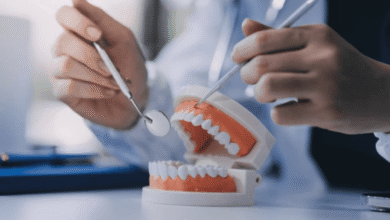Protect Your Jaw and Prevent Bone Loss Over Time

Jaw bone loss affects millions of people worldwide, yet many remain unaware of its silent progression until significant damage has occurred. Your jawbone requires constant stimulation to maintain its density and structure, much like other bones in your body need exercise to stay strong.
Understanding how to protect your jaw from bone deterioration can save you from costly treatments, uncomfortable procedures, and the cascade of oral health problems that follow. This comprehensive guide explores the causes of jaw bone loss, prevention strategies, and treatment options to help you maintain optimal oral health throughout your lifetime.
Understanding Jaw Bone Loss: The Silent Threat
Jaw bone loss, medically known as alveolar bone resorption, occurs when the bone that supports your teeth begins to deteriorate. This process happens gradually, making it difficult to detect without professional dental examinations and X-rays.
The jawbone maintains its density through a biological process called remodeling. When teeth are present and functioning normally, the pressure from chewing and biting stimulates bone cells to regenerate. Without this stimulation, the bone begins to shrink and lose mass at an alarming rate.
Research shows that within the first year after tooth loss, the jawbone can lose up to 25% of its width. This deterioration continues throughout a person’s lifetime, leading to changes in facial structure, difficulty eating, and complications with dental treatments.
Primary Causes of Jaw Bone Deterioration
Several factors contribute to jaw bone loss, with tooth loss being the most significant cause. When a tooth is extracted or falls out due to injury or disease, the underlying bone no longer receives the necessary stimulation to maintain itself.
Gum disease represents another major threat to jaw bone health. Advanced periodontal disease destroys the tissues and bone that support teeth, creating pockets of infection that accelerate bone loss. Without proper treatment, this condition can lead to tooth mobility and eventual tooth loss.
Dentures, while providing functional replacement for missing teeth, can actually contribute to bone loss over time. Traditional dentures rest on the gum tissue rather than stimulating the underlying bone, allowing resorption to continue unchecked.
Other contributing factors include certain medications, hormonal changes, smoking, excessive alcohol consumption, and genetic predisposition. Age-related changes in hormone levels, particularly in postmenopausal women, can accelerate bone loss throughout the body, including the jaw.
See also: Why Medical Transcriptionist Services Matter in Healthcare
Prevention Strategies for Long-Term Jaw Health
Maintaining excellent oral hygiene forms the foundation of jaw bone preservation. Regular brushing, flossing, and professional cleanings help prevent gum disease, which is crucial for protecting the supporting structures of your teeth.
Addressing tooth loss promptly is essential for preventing bone deterioration. When marketing dental implants, dental professionals emphasize their unique ability to stimulate jaw bone tissue, making them the gold standard for tooth replacement. Unlike other options, implants integrate with the bone and provide the necessary stimulation to maintain bone density.
Lifestyle modifications can significantly impact jaw bone health. Quitting smoking improves blood flow to the gums and bone, while limiting alcohol consumption supports overall bone health. A diet rich in calcium and vitamin D provides the building blocks necessary for strong bones.
Regular dental checkups allow for early detection and treatment of conditions that could lead to bone loss. Professional cleanings remove harmful bacteria that contribute to gum disease, while routine X-rays can identify problems before they become severe.
Treatment Options for Existing Bone Loss
For individuals who have already experienced jaw bone loss, several treatment options can help restore function and prevent further deterioration. The most appropriate treatment depends on the extent of bone loss and the patient’s overall health.
Bone grafting procedures can rebuild lost bone tissue using materials from the patient’s own body, donor sources, or synthetic alternatives. These procedures create a foundation for future dental work and can help restore facial support.
Dental implants provide the most comprehensive solution for replacing missing teeth while preserving remaining bone. The titanium posts integrate with the jawbone through a process called osseointegration, effectively replacing the tooth root and providing necessary stimulation.
Sinus lift procedures address bone loss in the upper jaw by adding bone material to the area between the jaw and sinuses. This specialized technique creates adequate bone height for implant placement in the posterior upper jaw.
The Role of Professional Monitoring
Regular professional monitoring plays a crucial role in preventing and managing jaw bone loss. Dental professionals use advanced imaging techniques to assess bone density and detect early signs of deterioration.
Cone beam CT scans provide three-dimensional images of the jaw, allowing for precise evaluation of bone quality and quantity. This technology helps in treatment planning and monitoring the success of bone preservation efforts.
Periodontal maintenance visits focus specifically on preventing and treating gum disease, which is essential for protecting the bone that supports your teeth. These specialized cleanings remove bacteria and toxins that contribute to bone loss.
Taking Action for Your Jaw Health
Protecting your jaw bone requires a proactive approach that combines excellent oral hygiene, lifestyle modifications, and professional care. The earlier you begin implementing protective measures, the better your chances of maintaining healthy bone throughout your lifetime.
Don’t wait for symptoms to appear before taking action. Schedule regular dental checkups, address missing teeth promptly, and maintain excellent oral hygiene habits. Your future self will thank you for the investment in your oral health, as a strong, healthy jawbone supports not only your teeth but your overall quality of life.
By understanding the importance of jaw bone health and taking appropriate preventive measures, you can maintain a strong foundation for your smile for years to come.




